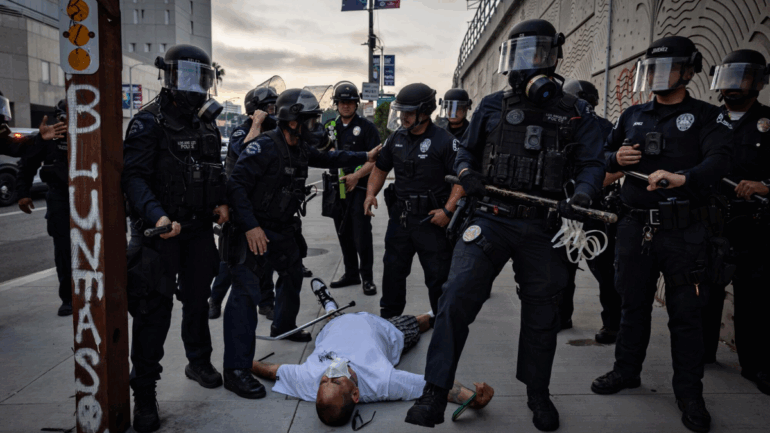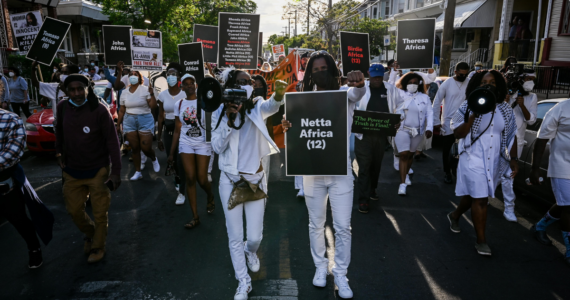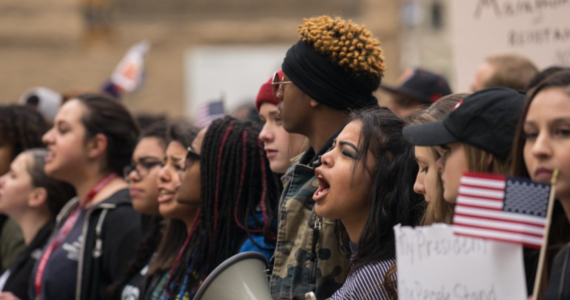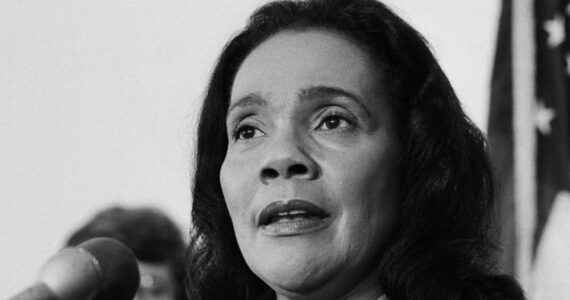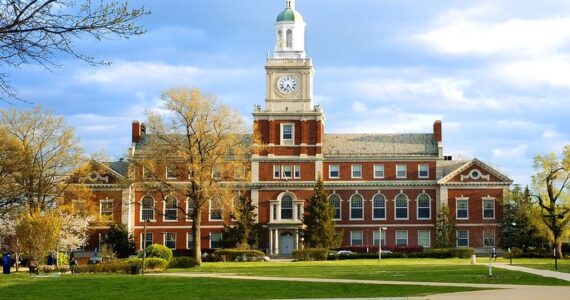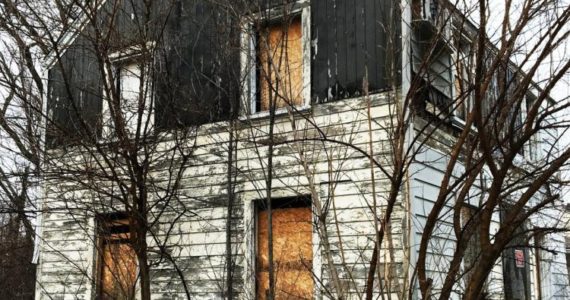In early June 2025, California found itself at the center of a nationwide firestorm after coordinated ICE raids swept through several cities, prompting an eruption of mass protests, civil disobedience, and widespread criticism of the Trump administration’s aggressive immigration enforcement. Tensions further escalated when President Trump unilaterally deployed military troops to the state, a move condemned by local leaders and civil rights organizations as an abuse of power.
What Sparked the Protests
The protests sweeping across California were ignited by a wave of aggressive immigration enforcement actions conducted by U.S. Immigration and Customs Enforcement (ICE) beginning June 6, 2025. These raids specifically targeted immigrant-heavy neighborhoods in Los Angeles, Santa Ana, and Riverside, with dozens of unannounced workplace inspections at garment factories, construction sites, restaurants, and even courthouses. According to eyewitnesses and community advocacy groups, ICE agents forcibly entered properties, detained individuals without warrants, and separated families with little to no explanation.
Communities Mobilize in Response
In response, immigrant rights activists, local faith leaders, students, and labor organizations mobilized rapidly, organizing demonstrations throughout the state. Within hours, hundreds gathered outside ICE field offices in downtown LA, while others blocked traffic along key freeway exits and staged sit-ins at city halls. Protesters carried signs reading “No More Raids” and “Sanctuary for All,” demanding an immediate halt to federal overreach and the release of detainees.
Federal Response Escalates Tensions
Tensions escalated when federal officers responded to peaceful protests with riot gear, tear gas, and rubber bullets. This militarized reaction not only inflamed tensions but drew widespread condemnation from civil rights organizations and legal observers. The American Civil Liberties Union (ACLU) released a statement calling the raids “a coordinated campaign of fear” and accused ICE of violating due process.
Trump Deploys Troops Without Consent
What made the situation even more volatile was President Trump’s decision to deploy thousands of military troops to the region—without the consent of California’s elected leadership. The order, issued under emergency authority, mobilized approximately 2,000 California National Guard members and 700 Marines to protect federal buildings and “assist” ICE agents. Trump characterized the deployment as a necessary move to quell “violent unrest” and secure “law and order.”
Local Leaders and Legal Experts Push Back
Local officials strongly disagreed. California Governor Gavin Newsom and Los Angeles Mayor Karen Bass publicly decried the decision, calling it “unprecedented,” “unconstitutional,” and “a dangerous provocation.” Neither official was consulted prior to the order, and both immediately filed lawsuits challenging its legality.
Legal Scholars Raise Alarms
Critics argue that Trump’s move was not only unnecessary but also deeply reckless. By deploying federal troops in response to peaceful protests, the administration escalated a tense situation, blurring the line between civil law enforcement and military intervention. Legal scholars noted that unless the Insurrection Act is formally invoked—which it was not—this kind of deployment risks violating the Posse Comitatus Act, a foundational law restricting military involvement in domestic law enforcement.
A Dangerous Precedent
Rather than calming tensions, Trump’s decision poured fuel on an already burning fire, drawing comparisons to previous moments in American history when military force was used against citizens exercising their right to protest. For many Californians, the message was clear: dissent would be met not with dialogue, but with force. And in a state that prides itself on sanctuary policies and local governance, this felt like a direct challenge not just to immigration policy, but to democratic norms themselves.
What Happens Next?
Legal battles are already underway. California’s attorney general has filed for an emergency injunction to block the continued deployment of troops, while multiple civil rights organizations are preparing suits on behalf of detained individuals. Public demonstrations are expected to continue through the summer, with national organizations planning solidarity marches in other major cities.
With the 2026 election season looming, the events in California could become a flashpoint in national debates over immigration, executive power, and the militarization of law enforcement. What began as a local enforcement issue has evolved into a national reckoning over the balance between federal authority and state rights—and the soul of American democracy itself.
What are your thoughts on the California protests—do you believe the people or the president got it right? Let us know in the comments.
Follow MEFeater on Twitter, Instagram, Facebook, and Pinterest for the latest headline news.


